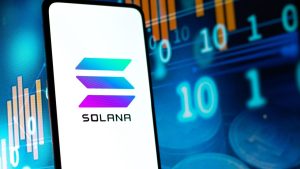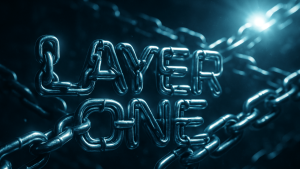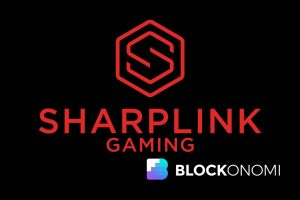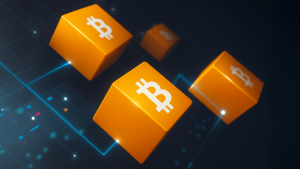Gala Games blockchain platform combines gaming and commerce
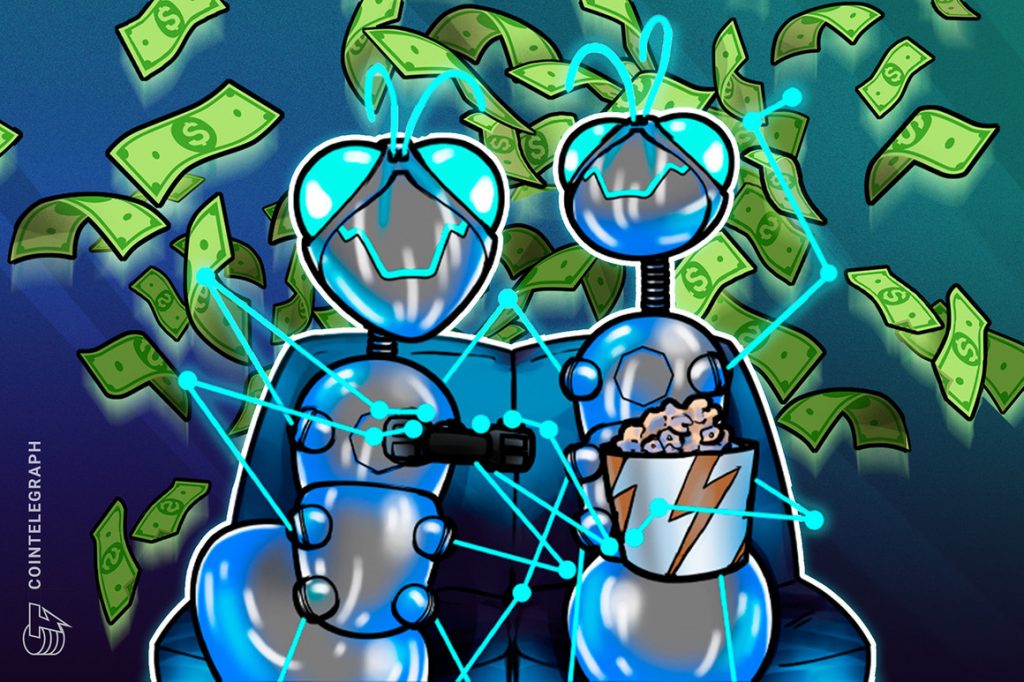
Crypto games that combine play-to-earn (P2E) and nonfungible token (NFT) mechanics found a huge boost in 2021, thanks to the success of Axie Infinity and metaverse hype.
However, playability still remains a major problem, as most crypto games focus on tokenomics rather than providing a fun and enjoyable gaming experience.
Apart from the earning aspect, they often offer nothing special compared to traditional PC or console video games, where players can find interesting plots, nice visual effects and addictive gameplay. Axie Infinity has become known for its repetitive gameplay, known among gamers as “grinding,” while The Sandbox and Decentraland don’t really provide attractive graphics.
There is one worth the attention out of the many games out there, which actually isn’t really a game itself, but a platform.
Gala Games presents itself as a gaming blockchain ecosystem. Its digital fuel is the Gala Games (GALA) token, created according to the ERC-20 standard on the Ethereum blockchain. It is also compatible with the Binance Smart Chain.
The decentralized ecosystem of Gala Games aims to provide gamers with control over gaming assets. Thanks to decentralization, they not only own their game items but also have a right to influence the whole project. Players will be engaged through distributed voting mechanisms to help determine which games should be added to the platform.
The Gala Games ecosystem includes five components: the games themselves, the game publishing platform, the NFT marketplace, cloud hosting and tokenomics.
Gaming platform: A combination of everything
Gala Games has a video game platform like Steam, PlayStation Store or Xbox Store, but unlike these platforms, Gala Games doesn’t rely on traditional video games but on projects that combine P2E mechanics, NFTs and decentralized finance (DeFi). Gamers can play freely and earn money just by playing.
Another feature of the platform is that the players themselves decide which games to add to Gala Games. Voting will be held among all Gala nodes and any player can create a node using their PC. In addition to the choice of the game, users will also be able to influence the development of the platform itself such as features to add and where it is better to direct the efforts of developers like creating new games, improving the interface or fixing bugs.
In February 2022, users of Gala Games decided to add the game called GRIT, akin to PUBG, to the platform.
Free P2E video game development
The second important component of Gala Games is the creation of video games based on the blockchain and NFTs. To do this, the company will open a separate division dedicated only to the development of blockchain games.
Currently, there are nine games on the Gala Games platform, and only two of them are in beta testing: Spider Tanks and Town Star. The next game, Mirandus, was supposed to come out in December 2021, but the release was pushed back to the end of 2022 or even 2023. The launch date of other projects is also unknown.
President of blockchain of Gala Games Jason Brink told Cointelegraph that the main idea of the project is gameplay that will be interesting for gamers:
“The key differentiating factor for us is that we put the game and the gameplay first, before anything else. We believe that games and gamers should always be at the forefront of the gaming ecosystem. This is why we focus on AAA-quality game development. We deployed over $150 million in capital in January alone to acquire games for the platform. It is important to note that these are fully fleshed out AAA games from teams with decades of experience making winning games.”
Town Star is a mixture of a city sim and a farming sim like Zynga’s Farmville. It is currently the only fully released game available on PC. In October 2021, Town Star added an NFT and a P2E feature that allows players to earn money by participating in weekly tournaments, completing daily challenges and earning special rewards.
Spider Tanks is a session PvP shooter where one team of mechanical spiders fights another team. The peculiarity of this game is that players can create their own spiders from various parts such as chassis, weapons, skills and skins that are NFTs. The game is currently in beta and can run on PC. Users can also buy and sell in-game NFTs.

Mirandus looks like the most anticipated game from Gala. The project is a fantasy role-playing game (RPG) similar to Skyrim, where players fight monsters, create cities and complete quests. Every kingdom, city, character, weapon and armor in the game is an NFT that players can buy.
The Walking Dead is a multiplayer survival video game set in the world of The Walking Dead series. Players will kill zombies, collect supplies and build houses. The release date has not been announced, as the project is at an early stage of development and will be available on PCs.
Echoes of Empire is a sci-fi strategy game. Players can recruit heroes, hire armies, gather resources and build, buy and upgrade a Starfleet. Echoes of Empire has two modes: solo and team, which become available after creating a guild or joining it. As of right now, the game is under development. The estimated release date is the second quarter of 2022.
Legends Reborn is a card game where players need to build decks (collections) of fantasy creatures and fight against opponents. Unlike other similar games such as Hearthstone, all creatures in Legends Reborn will not be represented as cards but as 3D characters. In addition, users will be able to own the playing fields on which players will fight. The release date has not yet been announced.
According to the Gala Games team, the Last Expedition will be a AAA first-person shooter based on blockchain and NFTs. Last Expedition was created by renowned development studio Certain Affinity, which helped other companies with add-ons for Call of Duty: World at War and several parts of Halo. Moreover, it was the Halo series that became the source of inspiration for Last Expedition. A release date for the game has not been announced.
Fortified is a PvP tower defense game where players test their strategies using various assets they own. Players will build, develop and defend their cities, as well as raid the settlements of other players. The release date and launch date of Fortified have not been announced.
Legacy will present a city-building business simulation. In Legacy, players will be able to organize resource production chains and sell them on the market, maximizing their profits. The release of the game is scheduled for 2022.
Platform tokenomics and P2E model
GALA exists both as ERC-20 on Ethereum and BEP-20 on BNB Smart Chain. In 2022, the platform plans to migrate to its own chain called GalaChain. According to the project’s team, this will increase the speed of transactions, reduce their cost and solve many of Ethereum’s scaling problems that hinder the long-term development of the project.
Little is known about the platform’s tokenomics, Gala will be used to purchase NFTs and pay for licenses to run nodes, according to the project’s website. At the same time, each game project will be able to launch its own token, which can be bought and sold both in the Gala Games marketplace and on cryptocurrency exchanges and exchangers.
Gala Games claims that any player can not only play in their games but also earn money without any investments — after all, these are free P2E games. However, this is not entirely true. For example, if taking the already launched game Town Star, the player can get the internal token of the Town project and sell it for real money in two ways: by completing tasks or by participating and winning in weekly tournaments. But, in order to complete tasks, the player needs to have at least one special NFT project, which can be bought only if they have a first-level account in the Gala Games network. So, it’s very similar to staking.
Participation in tournaments is also not an option since players with special NFTs have advantages over other players. For example, NFT buildings can provide a bonus to resource production speed or reduce cost. Therefore, players without these NFTs are unlikely to be able to win tournaments and thus earn real money. Such a mechanism cannot be called play-to-earn — it’s more of a pay-to-win model.
Prospects for Gala Games
Gala Games now has 1.3 million active players. At the same time, they bought more than 26,000 NFTs, the most expensive of which sold for $3 million. These figures testify to the considerable success of the project at the moment. However, the prospects for Gala Games in the medium and long term are still in question.
The fact is that the development of video games is a very complex and expensive process with unpredictable results. The history of video games is full of examples when a very promising game with cool developers and an unlimited budget failed miserably after release. Therefore, it is very difficult to predict the future of any company in this industry.
It turns out that the prospects of Gala Games are completely dependent on the success of their games. If they gather a large enough audience and are financially successful, then the startup will live. If not, Gala Games will be another company that video games have killed.
Brink is quite optimistic about the future of the project:
“Our current release cadence is planned to be about eight games per year. We have 26 titles in development, and we are very much looking forward to releasing more titles.”
The views and opinions expressed here are solely those of the author and do not necessarily reflect the views of Cointelegraph.com. Every investment and trading move involves risk, you should conduct your own research when making a decision.




